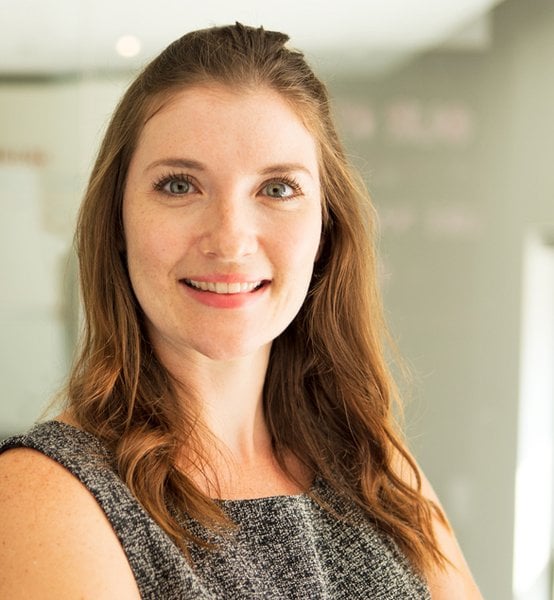
If you are not redirected within 30 seconds, please click here to continue.
Samedi: 10h – 16h HAE

If you are not redirected within 30 seconds, please click here to continue.
If you are not redirected within 30 seconds, please click here to continue.
Mortgage Guide: Get Started With Mortgages

Table of Contents
Looking to get a mortgage? For most Canadians, this is the biggest financial commitment they’ll ever make. It’s not surprising that many find it a tad overwhelming. But not to fear - this is a great place to start! From the ABC's of mortgage basics to picking the perfect loan for your home purchase, you’ll find the resources you need below.
What is a mortgage?
For most Canadians, homeownership would be impossible without also getting a mortgage; very few people can afford to purchase a home with their savings alone and require additional financial help. A mortgage is a loan designed to provide the funds needed to buy a home, with a long-term repayment time frame of up to 25 years. It is secured against the purchased property, meaning the homeowner will lose their home if they don’t pay the mortgage back.
A mortgage loan typically amounts to most of the value of a property or home and allows people to buy, live in and use the property without paying the total value of the property all at once. In exchange, the mortgage holder is required to pay a set amount of interest on the loan. The person/people purchasing the property don't actually own it until the mortgage is fully paid off - the mortgage lender (i.e. the bank) effectively owns it in the meantime.
How much do I have to pay for my mortgage?
While a home buyer can borrow the majority of the money needed to buy a home, mortgage lenders also require that a down payment be made on the home before issuing the loan. The down payment is a percentage of the total value of the property. For example, if a property is valued at $100,000, and you pay a 10% down payment, you must pay $10,000 on the home purchase in order to qualify for the mortgage to pay off the rest. The amount loaned by the mortgage lender is referred to as the Loan to Value ratio (LTV). In this case, because 10% of the home value has been paid up front, this homeowner would have an LTV of 90%.
By law, all home buyers must pay a minimum of 5% down on their home purchase.
Why do banks want to give out mortgages?
Like all types of loans, mortgages come with a catch - interest payments. A mortgage must be paid back with additional interest, which is the profit made by the mortgage lender.
What is a mortgage rate?
A mortgage rate is the rate of interest you will pay on your mortgage loan. Not all mortgages are priced the same - mortgage interest rates can vary depending on the length of the mortgage term, whether it is a fixed mortgage rate or a variable mortgage rate, or an open or closed mortgage.
What kind of mortgage borrower are you?
The mortgage interest rate also depends on the loan applicant: someone who has a great credit score, a solid history of employment, and makes a larger down payment will likely qualify for a lower mortgage rate than someone who has had a poor experience with borrowing credit in the past and pays only a small down payment.
In Canada, there are two main mortgage borrower types: Conventional and High-Ratio.
A conventional (also called low-ratio) mortgage is when a buyer pays 20% or more on their down payment. By paying more up front, this buyer is considered to pose a lower risk of default to the bank, which may qualify them for a better interest rate. They will not have to pay mortgage default insurance premiums along with their mortgage payments.
A high-ratio mortgage applies to those who pay less than 20% down on their new home purchase. Because they carry a higher LTV, these borrowers are seen as higher risk by the mortgage lender. They are required by law to also take out mortgage default insurance, which protects the lender in case the buyer defaults on the loan. Buyers can get this insurance from the Canada Mortgage and Housing Corporation (CMHC), or private insurers Genworth Financial and Canada Guaranty.
Types of Mortgages
There are 3 main types of mortgages in Canada:
- Open Mortgage: This is the most flexible type of mortgage. The buyer can make large payments or even pay off the entire mortgage early without penalty. However, open mortgages tend to be priced at a higher interest rate due to this flexibility.
- Closed Mortgage: This mortgage type is considered the most stable, as they have a set interest rate for a specific period of time (the mortgage term). Many lenders will charge a penalty if the mortgage is paid off early, though some closed mortgages allow up to 20% extra to be paid on an annual basis - be sure to look for this feature when shopping for a mortgage!
- Convertible Mortgage: A convertible mortgage is a flexible option that allows you to change the type of mortgage you have over a certain period. For example, you can lock into a longer-term mortgage before your current term expires without having to pay a penalty. This option can be beneficial if you think interest rates are going to rise and you want to fix your rate early. Not all lenders offer convertible mortgages. There are restrictions so be sure to read the fine print for this type of mortgage product.
Types of Mortgage Rates
There are two main types of mortgage rates in Canada:
Fixed mortgage rate: Getting a fixed mortgage rate is like signing a contract - it is locked in for the whole term and the rate cannot rise or lower during that time period.
Variable mortgage rate: These rates are based on the state of the national economy; they correspond directly with the central interest rate set by the bank of Canada. This means the mortgage rate can change during the term if the central rate is changed. however, there has been no change to the central rate since September 2010.
How often do mortgage rates change?
Mortgage rates offered in the market can fluctuate daily. This can make shopping for a mortgage a bit of a challenge - no one likes it when they lock in a fixed rate and then find out that rates have dropped the next month. Many mortgage lenders overcome this by offering 'rate hold' period where if you are pre-approved for a mortgage rate, the lender will hold that rate for you for a period up to 120 days. If rates go up during that time, you will still get the lower rate provided the transaction closes within the rate hold period.
Although it is near impossible to predict with 100% certainty where the rates will move to, it's helpful to hear what the experts in the industry have to say about it. Our RATESDOTCA Mortgage Rate Outlook Panel is a monthly outlook for fixed and variable mortgage rates. Our independent panel of experts consider key economic indicators and then share their thoughts on whether or not mortgage rates will go up, down or stay the same over the next 30-45 days.
How do I pay my mortgage?
Mortgage repayments are made up of two different parts: the principal (the money borrowed) and the interest (the fee charged for lending the money). The more money you can pay as a down payment, the less you will need to borrow, resulting in less interest paid over the length of the mortgage.
Many lenders will offer you different payment options such as:
- Monthly
- Bi-weekly
- Bi-weekly rapid or accelerated
- Weekly
- Weekly rapid or accelerated
Visit our Mortgage Payment Calculator to see how the different payment options will affect your total interest paid.
How do I shop for a mortgage?
Not all mortgage products are created equal - it’s important to know what is offered by various lenders before making your decision. In Canada, mortgages are offered through federally-regulated financial institutions (such as our ‘big five’ banks), and through provincially regulated credit unions. Mortgage consumers can also use the services of a mortgage broker to help them find the perfect rate - these pros have access to a number of mortgages offered by a variety of lenders and can help match a home buyer to a rate based on their specific needs. Best of all… mortgage broker services are free!
Learn more:
You can also search for the best mortgage rates in Canada, right here at RATESDOTCA! View the best fixed or variable rates, for all terms, in your region.
Get money-saving tips in your inbox.
Stay on top of personal finance tips from our money experts!








